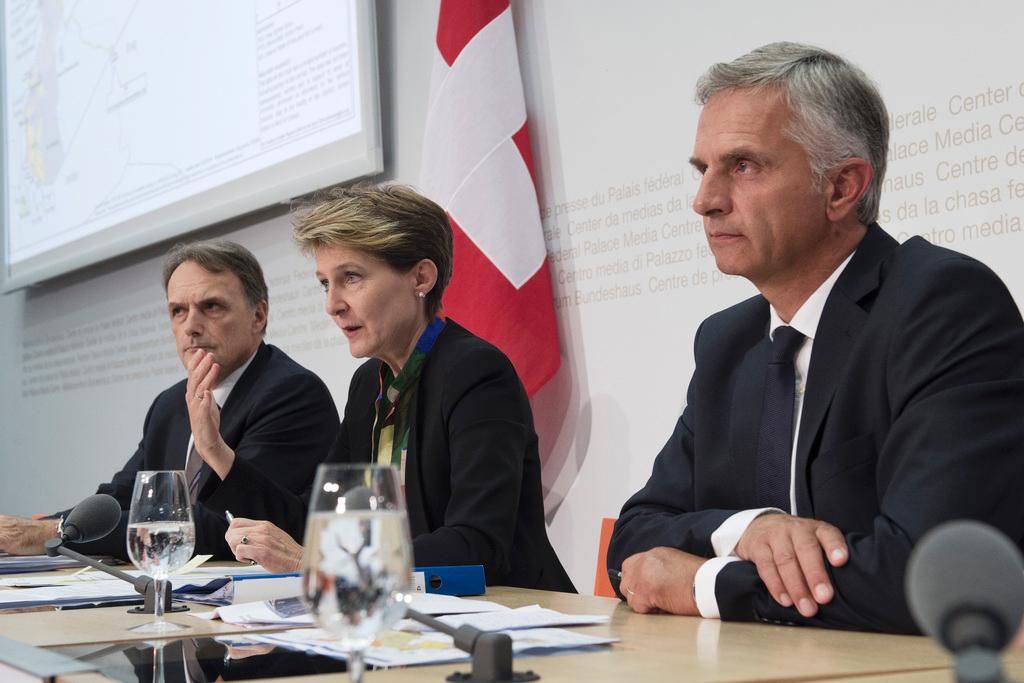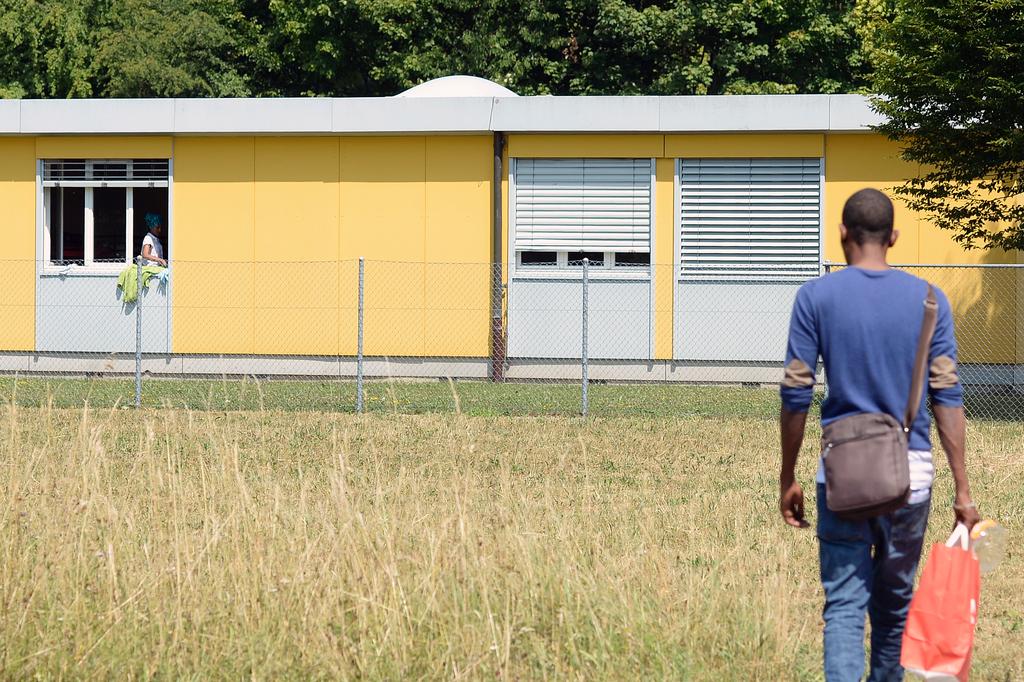Panel emphasises protection of migrants

A Swiss government advisory commission Monday said that greater focus should be placed on the protection of refugees even before they arrive in Europe, rather than on the refugee crisis that the continent now faces with the influx of thousands of asylum seekers.
A list of recommended measures to be taken by Switzerland was published days after a representative from the United Nations’ refugee agency (UNHCR) berated Switzerland for not granting more Syrians full refugee status rather than temporary residency.
The Federal Commission on Migration wrote in a communiqué that it currently “does not speak of a refugee crisis, but of a crisis in the protection of refugees”.
“One can speak of a crisis (of migrants), but this developed because the migration policies of various European Union member states was not up to it,” the commission’s report said.
The official advisory group recommended that: “It was also in the area of protection (of migrants) that solutions to the crisis should be found.”
Countries in the south
The experts proposed greater protection of refugees in countries they initially flee to, which are often those neighboring their home countries.
The government decided last week to increase its financial contribution by CHF70 million ($73.3 million) to help displaced people in the region and to boost long-term development projects.
So far Switzerland has granted CHF198 million in aid to countries affected by the conflict in Syria.
Other proposals by the commission on Monday included implementing resettlement programmes, where people would be transferred to Switzerland directly from embattled regions, and offering easier means of integration for asylum seekers once they arrive in Switzerland.
Also, by taking charge of refugees through a pan-European programme aimed at establishing a fairer repartition of refugees, pressure on regional countries would be relieved, the commission wrote.
UNHCR’s criticism
In an interview in Sunday’s NZZ am Sonntag newspaper, Anja Klug, UNHCR’s representative for Switzerland, criticised the fact that most Syrians allowed to stay in Switzerland were only given temporary residency.
“Switzerland is applying a much too restrictive policy towards Syrian asylum-seekers,” Klug declared.
She said only 35% of Syrians are officially given refugee status by the Swiss authorities, while this percentage rises to 70% on average in other European countries.
“The people who are only given temporary residency have to deal with the risk that they might be sent back to Syria from Switzerland at any given time,” she said, adding that this leads to feelings of insecurity for refugees.
These sentiments are exacerbated by the fact that family members are often not allowed to follow them to Switzerland, they have restricted access to the labour market and they cannot leave Swiss territory, she said.
This situation is a “disastrous signal” for the Swiss population, which gives the impression that Syrian asylum-seekers are not at all under threat and do not need protection, she told NZZ.
Swiss welcome
Since the war began four years ago, Switzerland has taken in around 9,000 Syrian refugees. About half this number were able to come to Switzerland thanks to a temporary relaxation of entry conditions.
On Friday, Swiss President Simonetta Sommaruga said Switzerland would participate in a European Union programme to relocate refugees fleeing the four-year conflict in Syria, as well as increase its financial contribution to international aid organisations.
In a first step, Switzerland said it would accept 1,500 refugees on condition they are registered as asylum seekers in neighboring Italy or in Greece. The contingent is part of a pledge made by Switzerland last March to accept 3,000 people under an international refugee effort.
Sommaruga said the government was also willing to consider up to 5,000 additional refugees over the next two years as long as the Dublin system of handling refugees remained intact.
EU leaders, deeply divided, are due to meet on Wednesday in a fresh attempt to agree on how and where to distribute 160,000 refugees among their countries.

In compliance with the JTI standards
More: SWI swissinfo.ch certified by the Journalism Trust Initiative


You can find an overview of ongoing debates with our journalists here. Please join us!
If you want to start a conversation about a topic raised in this article or want to report factual errors, email us at english@swissinfo.ch.